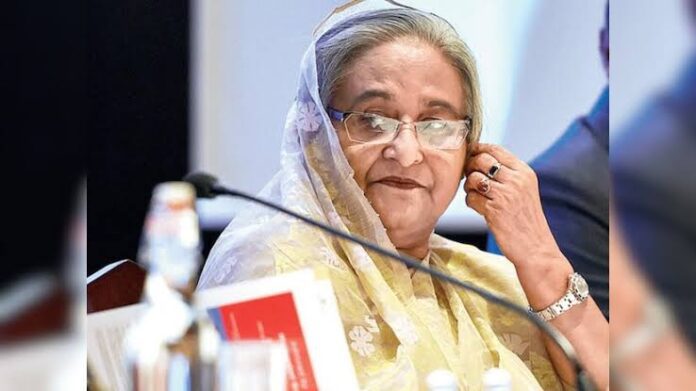The United States government has formally welcomed the appointment of a new caretaker government in Bangladesh, while some lawmakers in the US Congress have called for Bangladesh sanctions on key officials from the previous administration.
Possible Bangladesh Sanctions Amid Unrest
The sanctions have been prompted by the violent crackdown on widespread protests in Bangladesh, which resulted in the deaths of over 300 people, many of whom were students. The demonstrations erupted after student protests against government job quotas escalated into a broader campaign to remove the then-Prime Minister Sheikh Hasina from power.
Caretaker Government Takes Charge
In response to the unrest and violence, an interim government led by Nobel Peace laureate Muhammad Yunus was sworn in with the primary goal of overseeing fair and peaceful elections in Bangladesh. The swearing-in of Yunus and his interim government marks a significant moment in the country’s political landscape, as they aim to restore calm and stability in a nation that has been deeply divided.
The United States has expressed its support for the interim government and its efforts to bring about peace. Secretary of State Antony Blinken publicly welcomed Yunus’s appointment and urged for calm in Bangladesh, emphasizing the importance of maintaining peace during this transitional period. However, possibility of Bangladesh Sanctions looms.
China Outsmarts US, Defies AI Chip Sanctions with Brazen Smugglers and Shell Companies
Violence and Calls for Accountability
The unrest in Bangladesh has been marked by intense violence, with at least 300 people losing their lives in the crackdown by security forces. Human rights organizations have condemned the use of excessive force against protesters, accusing the previous administration of resorting to brutal measures to suppress dissent. These allegations have led to calls for accountability, particularly from members of the US Congress who are advocating for Bangladesh sanctions against individuals linked to the crackdown.
US Sanctions are Devastating Russian Battlecruisers as Western Technology Access is Restricted
The US Congress has specifically named former Home Affairs Minister Asaduzzaman Khan Kamal and General Secretary Obaidul Quader of the Awami League as key figures who should be held accountable for the violence and should face the Bangladesh Sanctions.
A group of six congressional Democrats, including Senator Chris Van Hollen, have urged the Biden administration to impose sanctions on these officials. They argue that those responsible for orchestrating the crackdown on protests must face consequences for their actions.
US Sanctions Intensify Russian Payment Issues with Its Allies China, Turkey and India
The letter from the US lawmakers, addressed to Secretary of State Antony Blinken and Treasury Secretary Janet Yellen, highlights the urgency of the situation. Although the State Department has not disclosed any details about potential sanctions, the calls from Congress reflect a strong desire for justice and accountability in the wake of the violence.
Unmasking Corruption: The Dark $34 Million Saga in Bangladesh by Jahangir Alam
Aftermath of Hasina’s Departure
Sheikh Hasina’s exit from Bangladesh has created a power vacuum and led to a mix of jubilation and further violence in the country. Following her departure, there have been reports of attacks on her official residence and the destruction of statues of her father, a significant figure in Bangladesh’s history. Additionally, the violence has extended to minority communities, raising concerns about the safety and security of vulnerable groups in the country.
US Crackdown: Aziz Ahmed Sanctioned Due to Corruption in Bangladesh
As Bangladesh moves forward under the leadership of the caretaker government, the challenges of restoring peace and stability remain significant. The international community, particularly the United States, is closely monitoring the situation, with a focus on ensuring that the upcoming elections are free, fair, and peaceful. The actions of the interim government and the response of the international community will be crucial in determining the future course of Bangladesh’s political landscape.


